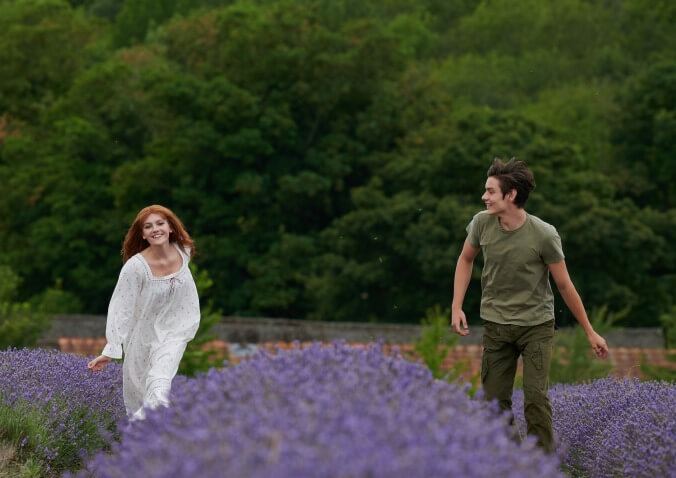The Lost Girls never lands on a good way to revisit Peter Pan
Even a fun performance by Vanessa Redgrave can't save this confusing update

Most individuals in the writing and creative fields generally believe that public domain is a good thing. It prevents eternal profiteering, allows for the occasional brilliant reinterpretation, and provides for greater distribution of literary works to the public. The Lost Girls, however, unintentionally makes the case for one notable exception: After watching, you may well wish that Peter Pan could be re-copyrighted to be kept out of the hands of anyone inclined to make this much of a mess of it.
Based on a novel by Laurie Fox, with material that probably worked better on the page, The Lost Girls follows Wendy Darling, granddaughter of the original Wendy who went to Neverland with Peter Pan all those years ago. Riffing on the epilogue that author J.M. Barrie added to the story four years after it debuted as a play, it follows the idea that Peter, losing interest in an aging Wendy, would take her daughter Jane to Neverland, and later her daughter, Margaret (renamed Wendy again for The Lost Girls). Barrie portrayed Pan as a boy who needed an older girl pal to play surrogate mother, rather than any kind of romantic creeper, but it’s not hard to stretch into a grooming metaphor, especially if the actor playing Pan (18 year-old Louis Partridge, in this case) is clearly post-adolescent.
We first meet the junior Wendy as a young homeschooled kid (Amelia Minto), whose mother has disappeared for reasons nobody talks about. Her Nana, the original Wendy (Vanessa Redgrave, massively elevating the material), prepares her for the day that she’ll be 12 or 13 and find a strange boy crying on her floor. Sure enough, she ages up into a new actress (Emily Carey) and it happens, when a very casual Peter shows up in a green T-shirt and jeans. Demonstrating that his vernacular isn’t quite up to date, he calls her a “queer girl” and invites her to “make like a leaf and blow.”
What follows is an extremely low-tech trip to Neverland, beginning with flying effects that Superman IV would be ashamed of, followed by scenes in … a field. And a cave. And some unspecified underwater area. Wendy wants to kiss Peter, but he’s not into that. Unlike Pan, Hook (Iain Glen) is, and he’s portrayed as an actual groomer who can’t wait for Wendy to grow up.
Time passes, and Wendy grows into an adult who now has an Italian accent for no reason, except that she’s played by writer-director Livia De Paolis. She’s a writer, who marries a musician named Adam (Parker Sawyers) and has a kid named Berry (Ava Fillery, and then Ella-Rae Smith). While Vanessa Redgrave apparently remains 80 years old for about 30 years, adult Wendy still can’t get over her memories of Neverland, especially when she starts experiencing visions of Hook again.
If only the point of all of this were clearer. Is Peter a sign of mental illness? Is he a bad guy pursuing the new girl in each generation, even if he loses interest as soon as they become teens? Did Peter influence Wendy’s taste in men? And what exactly did happen to her mother (Joely Richardson)? If the film has answers, they’re harder to find than the way to Neverland. And without much of a budget to envision fantastic effects, this is the sort of thing that might play better on the stage, especially since De Paolis has more of a pedigree there.
“Dark Peter Pan” isn’t exactly a groundbreaking take. Even Hook went there to some degree. On the far end of the spectrum, Alan Moore’s nearly identically titled Lost Girls used it as the basis for erotica. Yet somehow, none managed to be as compelling as the original tale, which is full of subtext the individual readers can consider for themselves. The best movie adaptation remains P.J. Hogan’s 2003 version, which radically cast actual kids and stuck mostly to the text.
DePaolis’ thoughts on said text, however, are so unclear as to be inscrutable. As such, they’re hardly worth anyone else’s time while so many other versions of the same story exist.